The designated Traditional Craft Products of Japan are durable and beautiful goods handmade by highly skilled craftspeople using traditional techniques and materials.
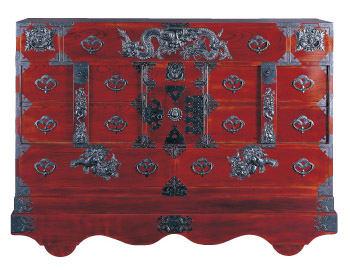 With the backing of Iwate Prefecture, in 1979, Iwayadō Tansu applied for designation as a Traditional Craft Product. After a rigorous, three-year process vetting the traditional design, materials, assembly process, and the lacquer and metalwork techniques used to produce our chests, a new chapter in the long history of Iwayadō Tansu began on March 5, 1982 with registration as a Traditional Craft Product.
With the backing of Iwate Prefecture, in 1979, Iwayadō Tansu applied for designation as a Traditional Craft Product. After a rigorous, three-year process vetting the traditional design, materials, assembly process, and the lacquer and metalwork techniques used to produce our chests, a new chapter in the long history of Iwayadō Tansu began on March 5, 1982 with registration as a Traditional Craft Product.
We are pleased to preserve the long tradition of exceptional design and craftsmanship that has made Iwayadō Tansu famous.
All of our products produced using traditional methods and materials are specially made to order. We look forward to yours.
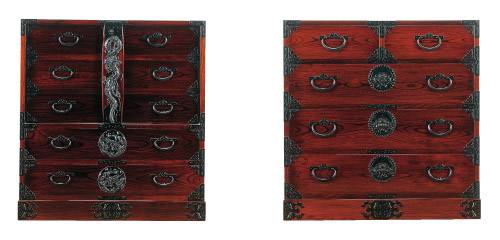
Production Process
WoodZelkova logs are seasoned to reduce the possibility of moving and splitting when the item is complete. Mortise and tenon joints are handcrafted and the chests and drawers assembled. The entire process is still accomplished by hand, because that is the best way to provide our valued customers with heirloom-quality traditional craft furniture. |
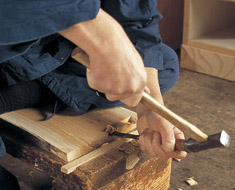 |
LacqueringLacquer is both richly beautiful and exceptionally robust. Recent excavations have revealed that lacquer was used in the Japanese archipelago many centuries back in prehistory. Iwate Prefecture is a major producer of raw lacquer. The lacquer techniques made famous by the crafts of twelfth-century Hiraizumi have been handed down through the generations, and are alive and well in the Iwayadō Tansu of today. |
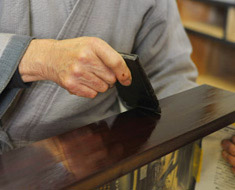 |
Lacquer “breathes,” expanding and contracting with the ambient humidity. Wood is likewise “alive,” responding to the environment. Because of this, your piece will change over time. The lacquer will develop depth and luster, bringing out the swirling wood grain. |
|
Metal FittingsTo create the design and lockplates for our furniture, traditional motifs, including dragons, mythical lions, and arabesques are first hand-drawn on paper. This paper is applied to the rear of metal plates, which are then hammered and chiseled into relief (repoussé). The outline of the motif is then brought to life from the front (chasing), using the craftsman’s own handmade gravers. The design is removed from the metal sheet and cleaned up with a file. At this point, it is treated to prevent rust, colored, and applied to the chest. |
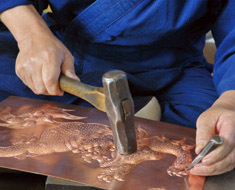 |
FinishingThe completed drawer handles, corners, hinges, lockplates, and decorative fittings are attached to the piece. |
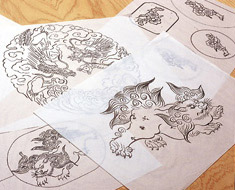 |
 |
Designation #22-293 |
|
This logo designates Traditional Crafts officially recognized by the Ministry of Economy, Trade and Industry as Traditional Craft Products, and guarantees that your piece has passed the rigorous quality control testing of the local producers’ union. |
